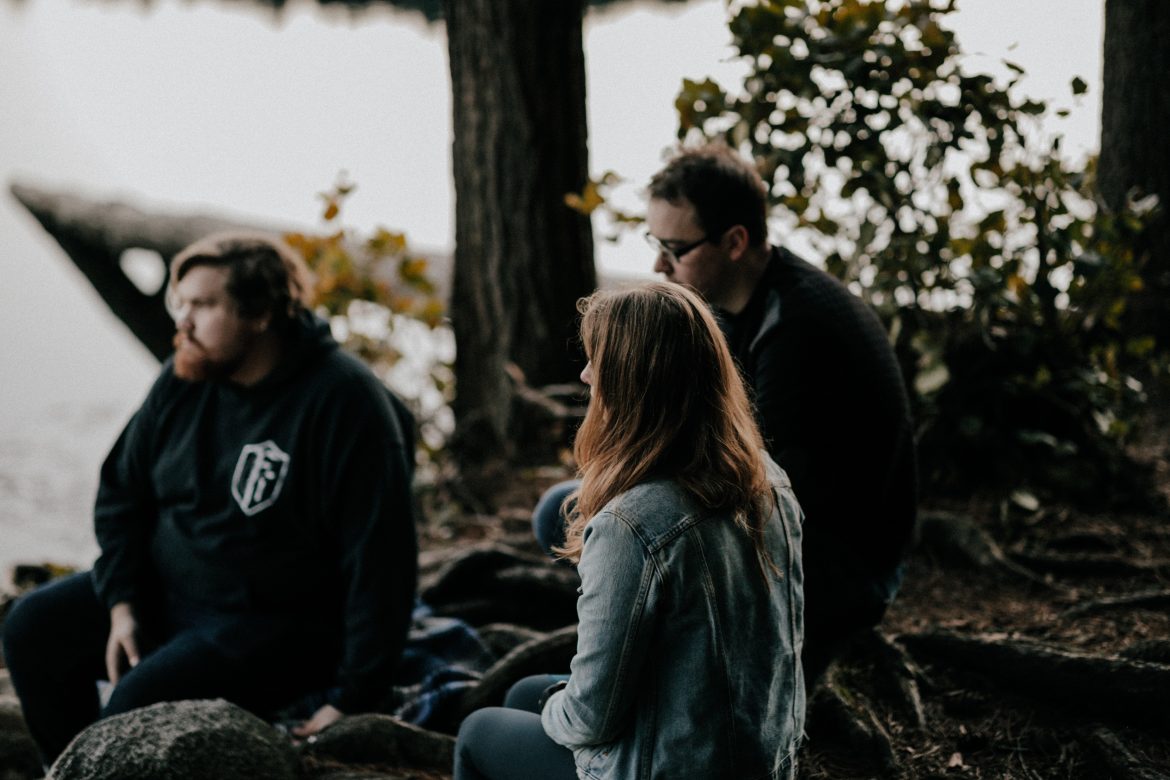Suicide is often a taboo discussion point, given the triggering nature of the subject. But as with men’s mental health generally, discussions about male suicide, according to research conducted by the Samaritans, are less frequent than discussions about female suicide because women are more likely to report having attempted suicide than men are. This is despite suicide being the biggest killer among men aged under 45.
There is a stigma to talking about suicide, and it is also gendered. Whilst women are often characterised as “over-emotional” when talking about their feelings, men are taught not to talk about their feelings and mental struggles at all as this could, according to gender stereotypes, hinder their masculinity. This relates to the well-known rule that “boys don’t cry”, which is expressed to men from a young age.
According to a survey by the Priory, a private addiction rehab and mental health hospital, “40% of men have never spoken to anyone about their mental health, despite over three-quarters suffering from common symptoms like anxiety, stress or depression”.
When researching why men don’t talk about these things, the same survey found that 40 % of men said: “I’ve learnt to deal with it.” 36 % said: “I don’t wish to be a burden to anyone”. 29% said: “I’m too embarrassed” and 20% said: “There’s negative stigma around this type of thing.”
So why do so many men aged under 45 commit suicide?
There is, of course, no singular reason why anyone might commit suicide. However, research has found that the stigma around men talking about their struggles and emotions is a major factor.
Men don’t talk about mental health enough. Dr Jill Harkavy-Friedman, the Senior Vice President of Research and leader the American Foundation for Suicide Prevention’s research programme, has done a lot of research into suicide.
Speaking to Quartz via email, she said: “Men seek help for mental health less often. It’s not that men don’t have the same issues as women – but they’re a little less likely to know they have whatever stresses or mental health conditions that are putting them at greater risk for suicide.”
However, acknowledgement of this issue has been brought to light in recent years in the media, for example, in the character of Connell in Sally Rooney’s 2018 best-selling novel Normal People.
According to a BBC article, men are more likely than women to turn to alcohol to medicate their mental health struggles, and alcohol dependency is a “known risk factor for suicide. 7% of men suffer with alcohol use disorder whereas 4% of women do. The BBC article also notes that unemployment stress and the isolation that comes with being successful in one’s career are alternative suicide risk factors for men. A 2015 study found that for “every 1% increase in unemployment, there is a 0.79% increase in the suicide rate”.
Breaking the taboo
A way forward could be to break the gendered stereotype of men appearing weak and less masculine when opening up about their struggles, but this idea isn’t so simple.
The gender stereotypes that separate men and women into ideals of what it means to be a man or woman have been around since the dawn of time, so ending such stereotypes won’t happen overnight.
Instead, we can encourage men to talk about their struggles and mental health more by proving that men needn’t feel ashamed talking about such topics.
In the UK, celebrities like Roman Kemp, Dr Alex George, and Professor Green, have aired documentaries and campaigns about men’s mental health and male suicide. All three of these men have lost a loved one to suicide (male, of course).
Roman Kemp
After having his own thoughts about suicide in 2019 and losing his best friend Joe Lyons to suicide in 2020, Capital Breakfast radio show host and The One Show host, Roman Kemp has done a lot to promote male suicide awareness through the media.
This includes campaigning for male suicide prevention on his social media programmes and his two BBC documentaries, Our Silent Emergency, which aired on BBC Three in 2021 and The Fight for Young Lives, which aired on BBC One on 25 October of this year (2023).
In the latter documentary, Kemp even appealed to the government to ensure 100% of schools have access to mental health support teams. At the time of filming the documentary, only 36% of schools had access to mental health support teams.
Dr Alex George
Love Island UK star, better known as Dr Alex, lost his younger brother Llŷr to suicide in July 2020 and has since become a Mental Health Ambassador.
Dr Alex has also used his media presence to spark discussions around male suicide, including creating mental health discussions on his social media, speaking on a The Men’s Room podcast episode about suicide, and airing a BBC Children in Need documentary, Dr Alex: Our Young Mental Health Crisis, in September 2021.
While the documentary focused on suicide among children and young people more generally, it encouraged people to talk about their mental health and suicidal thoughts more.
Professor Green
English rapper Professor Green has also used the media to raise awareness around male suicide by opening up about losing his father to suicide. His methods of awareness include 2 BBC Three documentaries: Understanding My Dad’s Suicide: Professor Green (October 2015) and Suicide and Me, which aired in May 2022.
In both documentaries, Professor Green talked about his experiences of losing his father and teaches men about suicide. The rapper also hosted a BBC Lifeline Appeal for Calm this year, which too raises awareness of male suicide.
Each of these celebrities has done so much to help encourage discussions about male suicide by sharing their personal experiences in the media, but there are also local organisations that are trying to help too.
Kingston Council’s Health Overview Panel report, published in July 2022, expanded the implementation of the Kingston’s Suicide Prevention Strategy (2016 – 2021) and made recommendations for next steps.
The strategy aimed to prevent suicide and has been delivered through Kingston’s Multi-agency Suicide Prevention Steering Group. Kingston is also part of the South West London CCG Suicide Prevention Programme.
The document states that there are around 10 suicides a year in Kingston and part of this strategy aims to prevent suicide among high-risk groups, including men. It notes that there has been progress made since the 2016-2021 draft was documented, including:
- The creation of campaigns targeting men, including posters in local Sports and Fitness Centres and promoted on social media on World Mental health day in October 2021
- The creation of a project based in Kingston College was set up in 2022 to engage male students and staff to pilot different approaches to providing mental health
- Three men have signed up to be ‘Suicide Prevention Champions’ as part of the South West London (SWL) suicide prevention trailblazer project which started in 2019
However, it notes that there are still areas for improvement, including:
- Reviewing which groups of men they are reaching through their existing plans, to ensure that they are reaching the most at risk men
- Ensuring future suicide prevention training and awareness campaigns reach low-income, middle-aged men in high-risk occupations
- Working in partnership with the SWL Suicide Prevention coordinator to increase the number of men signed up as suicide prevention champions in Kingston and work with them to further develop work to prevent suicide in men
If you or anyone you know is struggling with suicidal thoughts, you can call the Kingston Samaritans for free on 116 123.
There are also several charities or communities within Kingston that you can turn to, including:
The charity James’ Place in London also helps support men in mental health crisis.
Editor and reporter for the Kingston Courier





